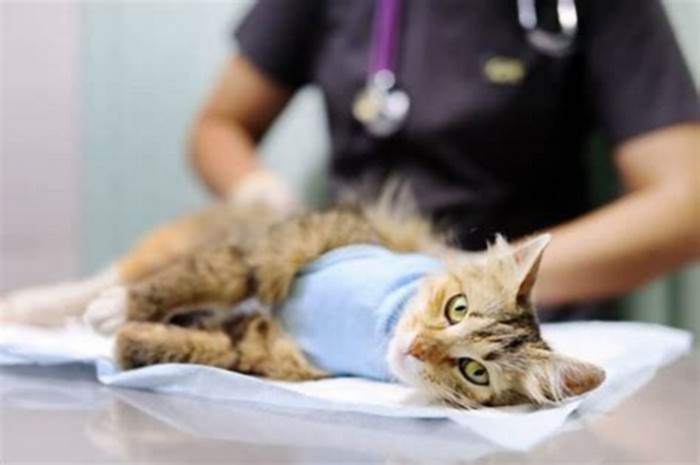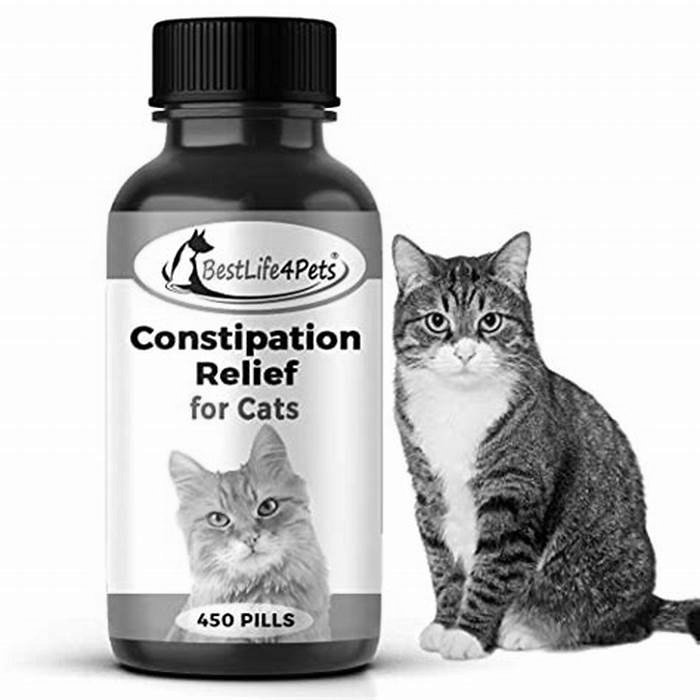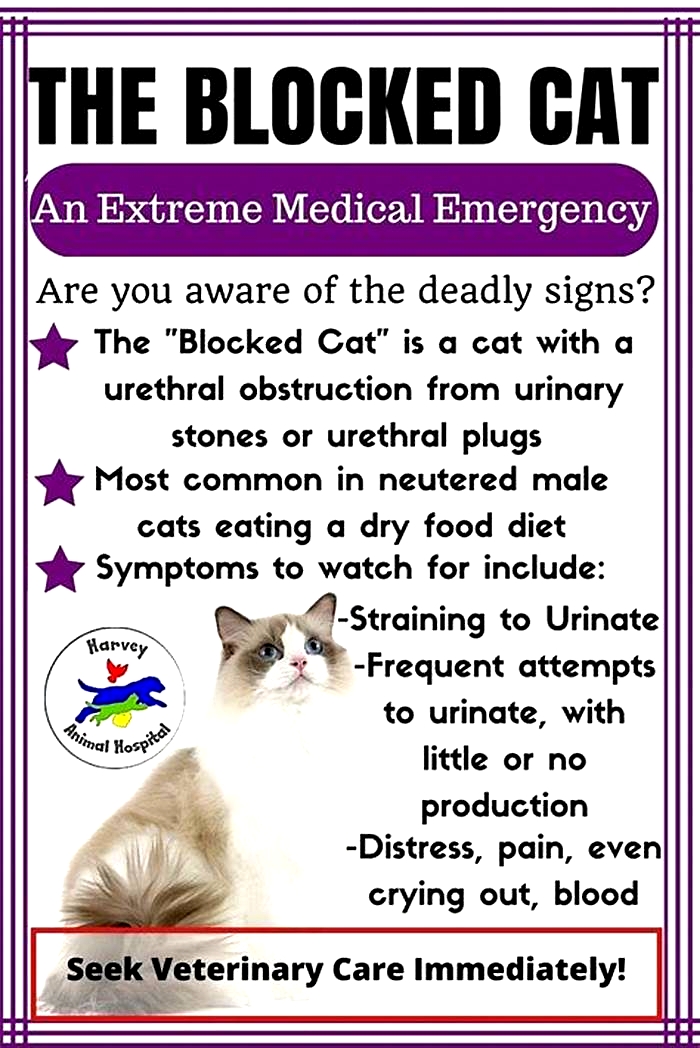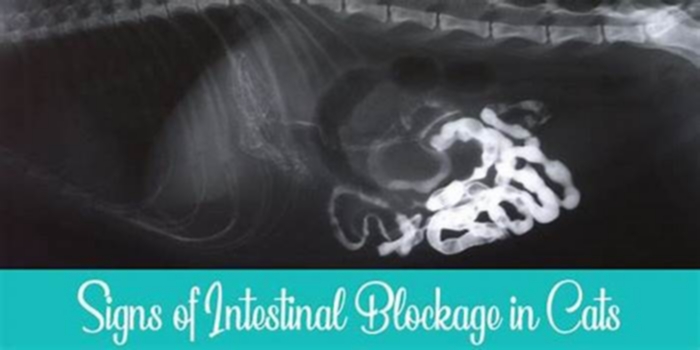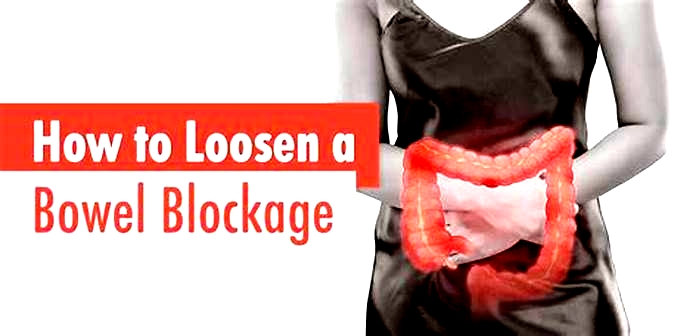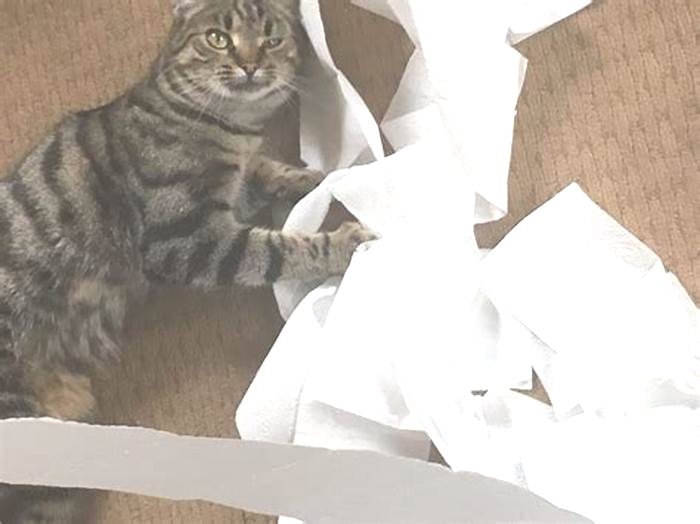How do I know if my cat has a blockage
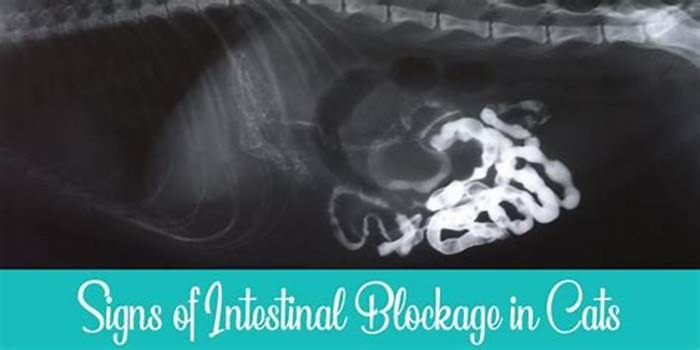
10 Common Symptoms of Intestinal Blockage in Cats
Disclaimer: Some of the links in this article may be affiliate links; we will earn a commision, at no additional cost to you, if you make a purchase through one of our links.
Intestinal blockage is a fairly common condition among cats. Not only is it painful, but it can also be potentially fatal. Curious creatures that they are, cats, especially younger ones, often get into trouble by consuming indigestible objects that dont have a business being in their bodies.
From cooked animal bones that can splinter to small household objects, many things can cause intestinal blockage in cats. It could also happen due to un-expelled hairballs from grooming, tumors, hernias, polyps, or other medical issues.
Learning how to spot the symptoms of intestinal blockage in cats can save our furry friends (and us) a lot of pain, and even mean the difference between life and death for them.
Symptoms of Intestinal Blockage in Cats Overview
Symptoms of intestinal blockage in cats can vary between subtle and severe, depending on the location and severity of the blockage.
Those symptoms are diarrhea or constipation, vomiting, dehydration, loss of appetite, weight loss, lethargy, cold body temperature or fever, abdominal swelling and pain, pain and changed behavior, and/or a string/object protruding from the cats mouth or rectum.
Symptoms Suggesting Intestinal Blockage in Cats
An intestinal blockage will prevent food, fluids, nutrients, and secretions from moving normally through your cats gastrointestinal tract. In severe cases, the blockage could cause poor blood circulation to the bowels, leading to shock, tissue death, and possibly life-threatening infection.
Thats why its vital to spot an intestinal blockage very quickly. If you think your furry friend might be displaying any of the following common symptoms of intestinal blockage, take her to a vet right away.
Diarrhea or Constipation
If theres a partial intestinal blockage, your cat may experience diarrhea or unusual bowel movements. However, cats may also get diarrhea simply due to eating something theyre not used to, making it difficult to tell whats going on.
Related: Is Miralax good for cats with constipation?
Its always best to err on the side of caution and see the vet. If the blockage is complete, your cat may not be able to defecate or even pass gas.
Vomiting
It isnt unusual for a cat to throw up every now and then, especially after eating too quickly or eating indigestible items, or as the result of hairballs caused by grooming.
However, if shes vomiting or retching often, especially after eating. Or, if the vomiting is accompanied by other symptoms, it could point to something more serious like an intestinal blockage.
The vomiting will be intermittent if theres a partial blockage and will be more frequent and continuous if its a complete blockage. The vomiting may be projectile if the blockage is in the upper small intestines, and maybe brown and fecal-smelling if its in the lower gastrointestinal tract.
Dehydration
Prolonged vomiting and diarrhea can result in dehydration and electrolyte imbalance. Excessive loss of fluids means loss of essential minerals in your cats body like chloride, sodium, and potassium. Skin tenting is a good test to help you tell if shes dehydrated.
Gently pinch a small amount of skin around your cats shoulders, pull it up, then let go. The skin will snap back into place quickly if your cat is hydrated, will fall back down slowly if shes dehydrated, and will stay up in a tent position if shes severely dehydrated.
Loss of Appetite
Always have your cat checked if her appetite changes and if she stops grazing throughout the day. Refusal to eat is usually one of the first signs of intestinal blockage and maybe cause for concern, especially if accompanied by other symptoms. Cats are also at risk of a liver condition called hepatic lipidosis if theyre under-nourished.
Related Posts: Upper Respiratory Infection Common Signs in Cats How to Detect Toxoplasmosis in Cats? Signs of Mercury Poisoning in Cats
Weight Loss
A cat suffering intestinal blockage will continue to lose weight and get weaker because of appetite loss. The blockage also restricts the flow of much-needed nutrients and other substances to her body.
Lethargy
If your cat seems weak, sluggish, quieter than usual, less interested in food, or sleeping more than usual, it could be a sign that somethings wrong.
Lethargy is a symptom of many problems, some minor and some major, including kidney disease, diabetes, or poisoning. Contact your vet if your cat has been lethargic for over 24 hours or if shes severely lethargic.
Cold Body Temperature or Fever
Use a pediatric rectal thermometer or digital thermometer to measure your cats temperature. A cats normal body temperature ranges between 37.739.2C or 100102.5F. Although fevers are helpful in fighting disease, a fever higher than 106F can damage organs.
A cat with a fever may act listless, shiver, breathe rapidly, hide, be depressed, or stop eating. A cat with low body temperature or hypothermia will start shivering; the condition may become severe, resulting in slow blood flow and a decreased heart rate.
Abdominal Swelling and Pain
Abdominal swelling with pain and tenderness can be a sign of intestinal blockage in cats. A swollen belly may also be due to several conditions, such as organ enlargement, fluid in her belly, intestinal parasites, liver damage, congestive heart failure, abdominal bleeding, or abdominal cancer.
A urine analysis may rule out other causes of symptoms; an abdominal ultrasound may reveal a foreign body in your cats stomach or intestines.
Pain and Changed Behavior
Your cat may show signs of distress and pain by refusing to lie down, sitting in a hunched position, straining, whimpering, crying, or seeming depressed. She may also show other signs of feeling sick like drooling, lip-smacking, or swallowing.
String/Object Protruding From Mouth or Rectum
This is a sure way to tell your cat has swallowed something she shouldnt. She may paw at her face or mouth if theres a string wrapped around the base of her tongue. Never try to remove a lodged object yourself, and take her to the vet right away.
In a Nutshell
Help your cat live a healthy, full life by preventing intestinal blockage. Keep her away from your food and other tempting objects, and discourage her from chewing and eating any indigestible items.
Knowing the symptoms of intestinal blockage in cats could help save your pets life. Blockages can be very serious, so the sooner you see your vet at the first sign of trouble, the better the prognosis for your cat.
Ive been living with cats since 2008 and I can confidently say I have more feline friends than humans lol. I currently live with 5 cats in different life stages; two of them are less than one year old, one is 2-ish years old and the oldest two are 9-ish years old. Ive developed a strong bond with cats over the years and Im eager to share my experience through this blog. You can learn more about my cats here.
Cat Intestinal Blockages: Causes, Symptoms, Treatment & Prevention
Partially blocked intestines can sometimes be treated without surgery. In these cases your cat will be hospitalized, given fluids and pain medications, and monitored to see if the blockage passes on its own. If the blockage does not pass, then surgical removal of the foreign body will be required.
After surgery, you will likely be discharged with medication. Medication can include pain medication, anti-nausea medication and possibly antibiotics. Give all medications as prescribed and follow all post-surgical instructions completely. Your cat will likely have to wear an Elizabethan collar to prevent them from opening their stitches back up. Your cat will need to rest following surgery, and you may need to restrict your cat's activity.
It is also very important to feed your cat bland, easily digestible food that won't overtax the digestive system. Your vet will most likely recommend therapeutic food to help support thedigestive systemwhile it heals.
Intestinal Blockage in Cats: Vet Reviewed Signs, Causes & Treatment
The information is current and up-to-date in accordance with the latest veterinarian research.
Learn moreIf you suspect your cat may have an intestinal blockage, please know that your cat needs emergency treatment ASAP.
Knowing the signs of an intestinal blockage is imperative for all pet owners. Puppies and kittens are especially prone to this condition because of their curious natures. Dogs and cats explore their worlds via their mouths. So, a playful feline may ingest something they shouldnt, leading to this medical emergency.

What Is an Intestinal Blockage?
An intestinal blockage is a gastrointestinal obstruction confined to the intestines. It can be either partial or complete. The result is an animal that cant eliminate digested food. Its not hard to imagine how it can quickly become life-threatening. Scientists have also identified a type usually seen only in cats called a linear obstruction. A linear obstruction occurs when a feline ingests a piece of string or a similar object.
Unfortunately, its a common pet emergency in both dogs and cats. Felines are curious about the world around them, and a shoelace or cord on a jacket makes the perfect prey. A cat may inadvertently swallow something indigestible that may or may not pass, which can become a real problem.
Usually, the waves of muscle movement in the intestines or peristalsis will get the foreign body out of the cats system. It becomes serious if multiple objects create a complete blockage. An ingested string can get stuck inside the animals body. Complications can occur if whatever the pet ate damages the internal organs or perforates the intestines.
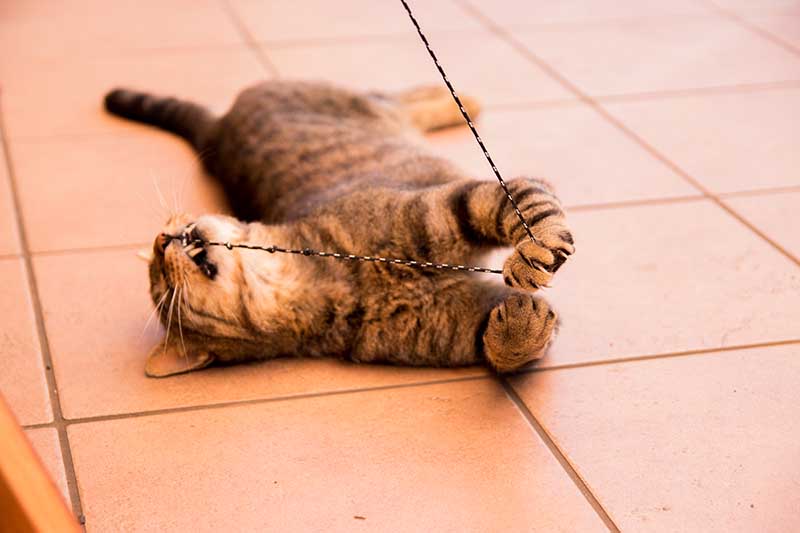
What Are the Signs of an Intestinal Blockage?
Your cat might not show any signs of an issue if its a partial obstruction. It may just pass the foreign body. If the blockage is interfering with your pets elimination, though, youll likely see more dramatic signs that something is wrong. One of the first signs you may notice is changes in behavior and hiding. Being sick or injured is a sign of weakness to these animals, making this thing instinctive.
Other signs include the following:
- Abdominal pain
- Lethargy
- Loss of appetite
- Vomiting
- Straining to eliminate
- GI distress
- Aggression
Your vet will likely start with a physical exam and a history of your pets symptoms. If necessary, they will usually follow these preliminaries with X-rays and an abdominal ultrasound. The former can identify solid objects, such as coins or toys. The latter is useful for other foreign bodies, like a piece of string that wouldnt show up on an X-ray.
What Are the Causes of an Intestinal Blockage?
One of the most common causes of an intestinal blockage is a foreign body your cat has ingested. However, other things may lead to this condition that are often seen more in felines than canines. They include the bane of every cat owner, hairballs. Frequent grooming can lead to the ingestion of large quantities of hair, which can affect the animals quality of life or even their lifespan.
Other causes include tumors in the cats GI tract that can interfere with peristalsis. A complication of a spinal injury can induce severe constipation and lead to the enlargement of the pets colon. Veterinarians call this abnormal enlargement megacolon. In rare cases, the intestines may telescope into themselves, resulting in a condition called intussusception.
Several things can bring about intussusception, including drastic diet changes, internal parasites, and ingestion of foreign bodies. That can complicate the treatment of an intestinal blockage and increase the risk of complications. Its worth noting that pets infected with parasites usually show other signs of a health issue, including diarrhea and vomiting.

How Do I Care for a Cat With an Intestinal Blockage?
If youre sure your cat ate something, your vet may hospitalize your pet and monitor them to see if they pass the foreign object. Thats an option if the item is small and smooth. More often than not, surgery is the best treatment. Even though its invasive and risky in itself, it reduces the chances of complications caused by further damage to the intestine.
Your veterinarian will attempt to remove the foreign object based on the imagery data. If it caused damage, they might need to take out severely damaged sections of the intestine or reconstruct parts of it. Linear items, like string or rubber bands, can make an already invasive procedure even more complicated, particularly if it has become embedded or attached to other structures.
Your cat will likely remain hospitalized for a couple of days so your vet can monitor your pets recovery. Theyll likely receive IV fluids, pain meds, and antibiotics if deemed necessary. The immediate goal is to ensure your kitty is keeping down food and eating on its own. Much depends on how well your pet manages this highly stressful situation.
Once your cat is home, supportive care involves following up with any meds your vet has prescribed. Theyll likely recommend restricting your pets activity to allow the stitches to heal. They may also schedule an exam to check on the incision site and ensure your kitty is healing properly. Treatment costs will undoubtedly run into four figures if emergency surgery is needed.
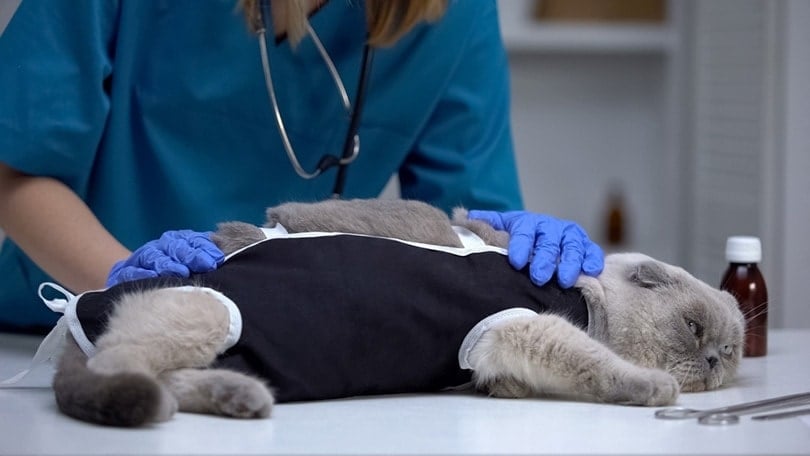

Frequently Asked Questions
What Is the Prognosis for a Cat Diagnosed With an Intestinal Blockage?
It depends on what your pet ingested and how soon you act. An object with rough edges is more problematic and also reduces the treatment options. A bit of string is bad, but a lengthy strand is worse. The prognosis is good in many cases. However, if the obstruction has caused complications like an infection, the chances of a complete recovery are less clear.
Does Pet Insurance Cover the Treatment for an Intestinal Blockage?
If you opt for a comprehensive plan, your insurer will likely cover GI obstructions. Your out-of-pocket cost will depend on your deductible and the amount of coverage. We suggest determining if the company will cover this procedure if youre bringing a new kitten home.
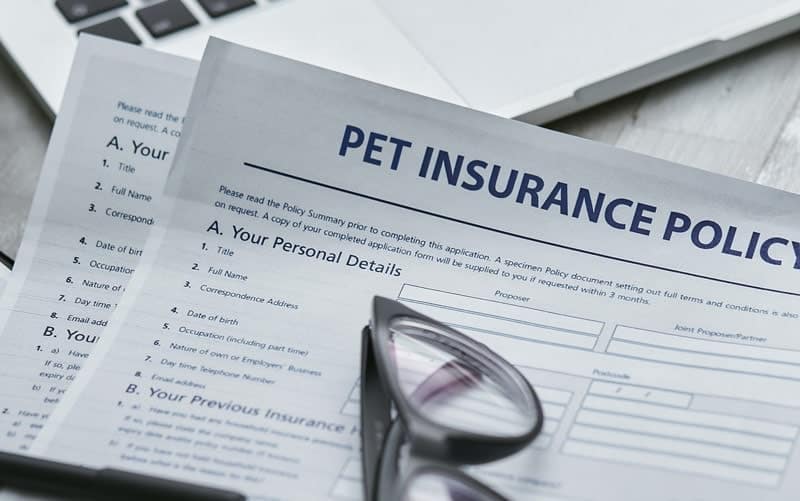
How Can I Prevent an Intestinal Blockage From Occurring?
Sometimes, owning a cat is like having a toddler in your home. Youll have to cat-proof your home with many of the same mom tricks to keep them out of mischief. We recommend picking up any strings, rubber bands, or similar materials your pet will treat as a toy.

Conclusion
An intestinal blockage is a medical emergency requiring prompt treatment to ensure your cats survival. You should always contact your vet if you notice any abrupt changes in your pets behavior. It may point to something less serious. However, given the importance of immediate care, its not worth the risk of allowing your cats symptoms to resolve on their own.
Featured Image Credit: PRESSLAB, Shutterstock

